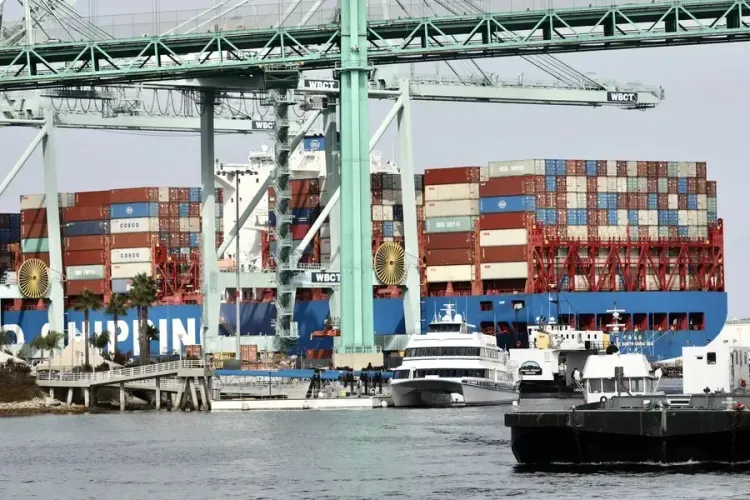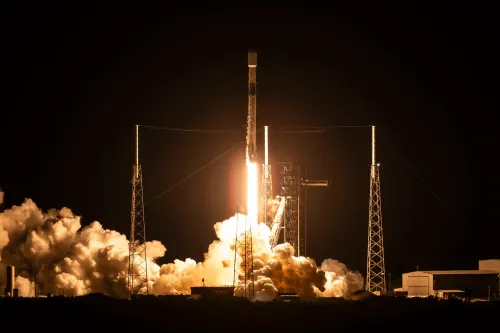Concerns Rise at America's Largest Port Over Trump's Tariffs

Synopsis
Key Takeaways
- 10% decrease in cargo volume expected.
- New tariffs affect various essential imports.
- Local economy may suffer significant disruptions.
- Job opportunities in the supply chain are at risk.
- The trade, transportation, and utilities sector is crucial for LA's employment.
Los Angeles, April 5 (NationPress) - Tariffs may result in a 10 percent decline in cargo traffic at the Port of Los Angeles later this year, cautioned Gene Seroka, the Executive Director of the nation's largest port.
"We rely on lumber from Canada; appliances from Mexico; aluminium, steel, copper, and furniture from China," Seroka stated during a conversation with Politico, a digital news outlet focused on American politics.
"All of these essential goods were subject to the highest taxes we've encountered following yesterday's announcement," he expressed with concern. "Any reduction in port activity could profoundly impact the LA-area economy."
"In my opinion, during the latter half of this year, we will begin to see a downturn in cargo volume. I estimate this decrease will be at least 10 percent at the largest port in the country, located here in Los Angeles," he added.
On Wednesday, President Donald Trump unveiled a fresh set of tariffs, imposing a 10 percent baseline tariff on all imports starting April 5, alongside specific higher rates on trading partners with which the United States has the largest trade deficits, set to commence on April 9, as reported by Xinhua news agency.
The tariffs included additional duties of 24 percent on Japan, 25 percent on South Korea, and 34 percent on China. Furthermore, the new tariff on China was layered on top of an existing 20 percent tariff imposed by Trump concerning the fentanyl issue, escalating US tariffs on China to a staggering 54 percent.
Trump's strategy to raise tariffs has sparked a surge among vendors eager to ship their international products prior to the tariffs taking effect. Consequently, the twin ports of Los Angeles and Long Beach achieved record cargo traffic in November as businesses stocked up on goods in anticipation of the tariffs.
However, that surge has subsided, and the availability of goods is expected to dwindle significantly as shipping activity slows and fewer items become available or affordable. Many industry insiders predicted this following Trump's announcement on Wednesday, emphasizing that any decline at the busiest ports in the nation would have a ripple effect on the LA-area economy and beyond.
The trade, transportation, and utilities sector represents one of LA County's most significant employment sectors, with approximately 830,000 workers employed last year, according to a report by the Los Angeles County Economic Development.
"There will be fewer job opportunities at the ports and throughout the supply chain extending from the ports into the Inland Empire, where a large number of containers are processed daily," noted economist Jock O'Connell, an international trade advisor at Los Angeles's Beacon Economics.
"Workers will have to act quickly to maintain their jobs and provide for their families," Seroka remarked on Friday. "This situation will be disruptive."









